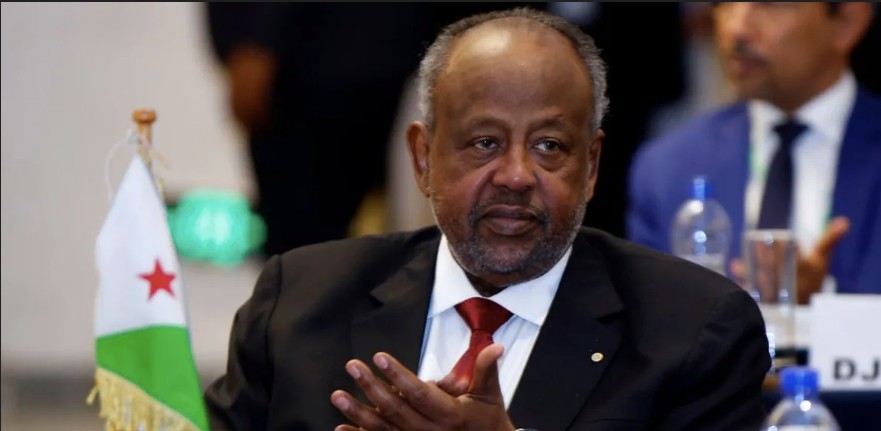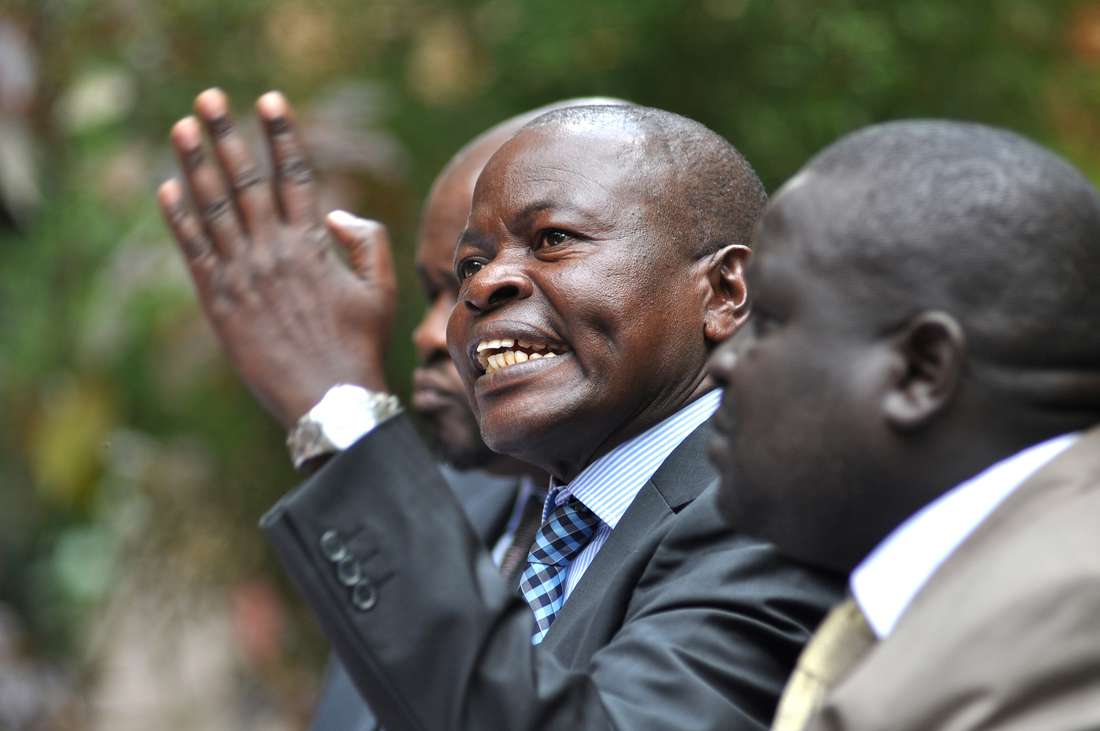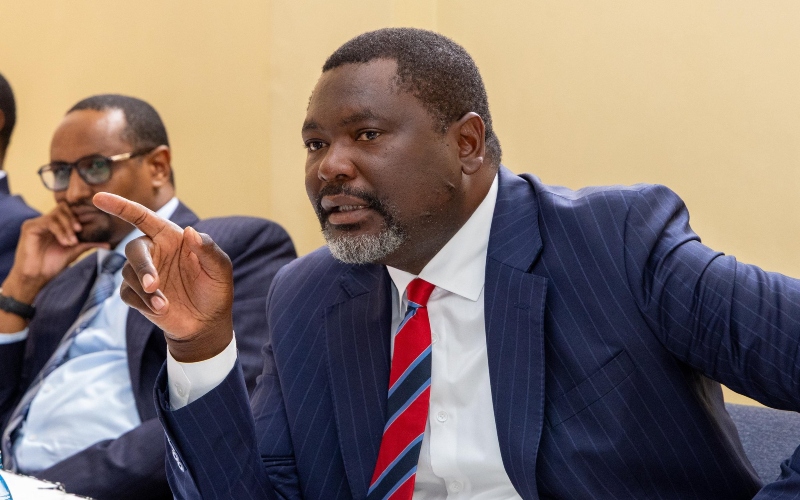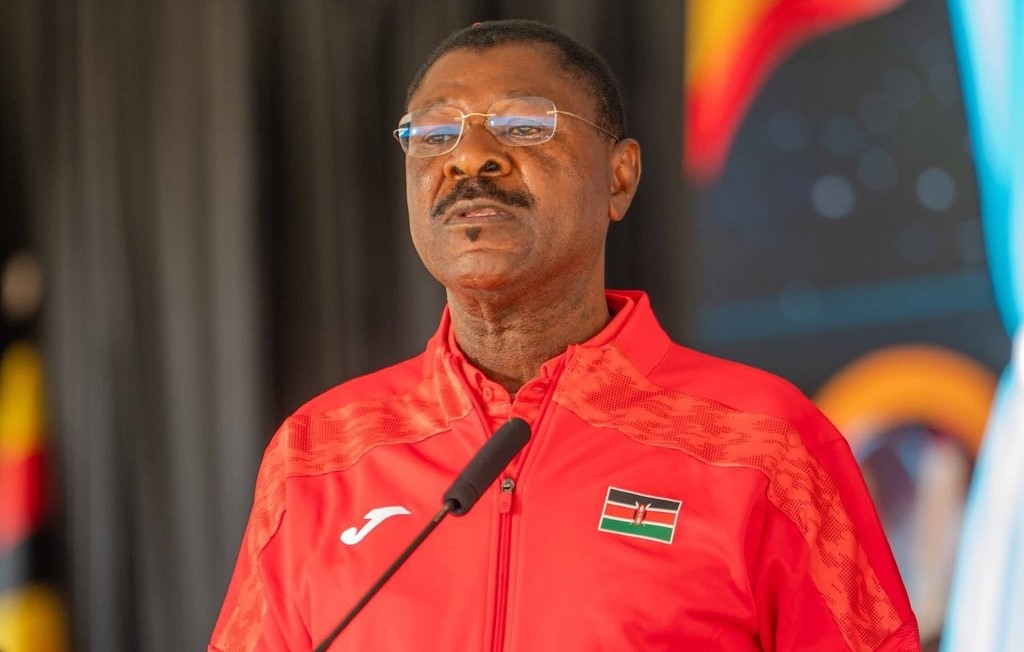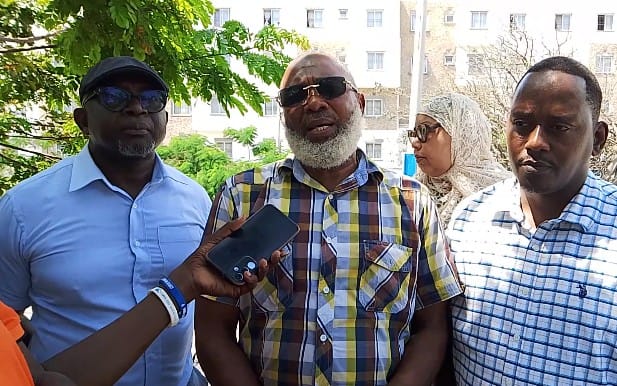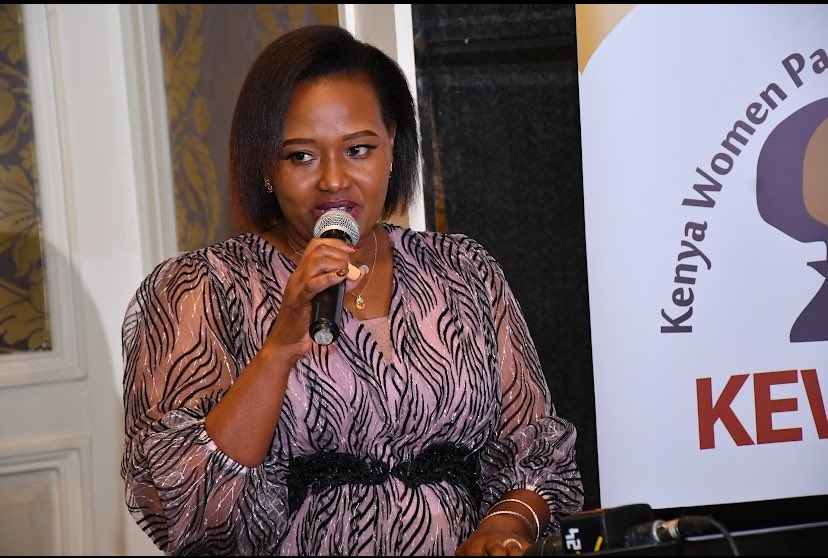Somalia’s President Hassan Sheikh moves to end political standoff with Jubaland leader Ahmed Madobe
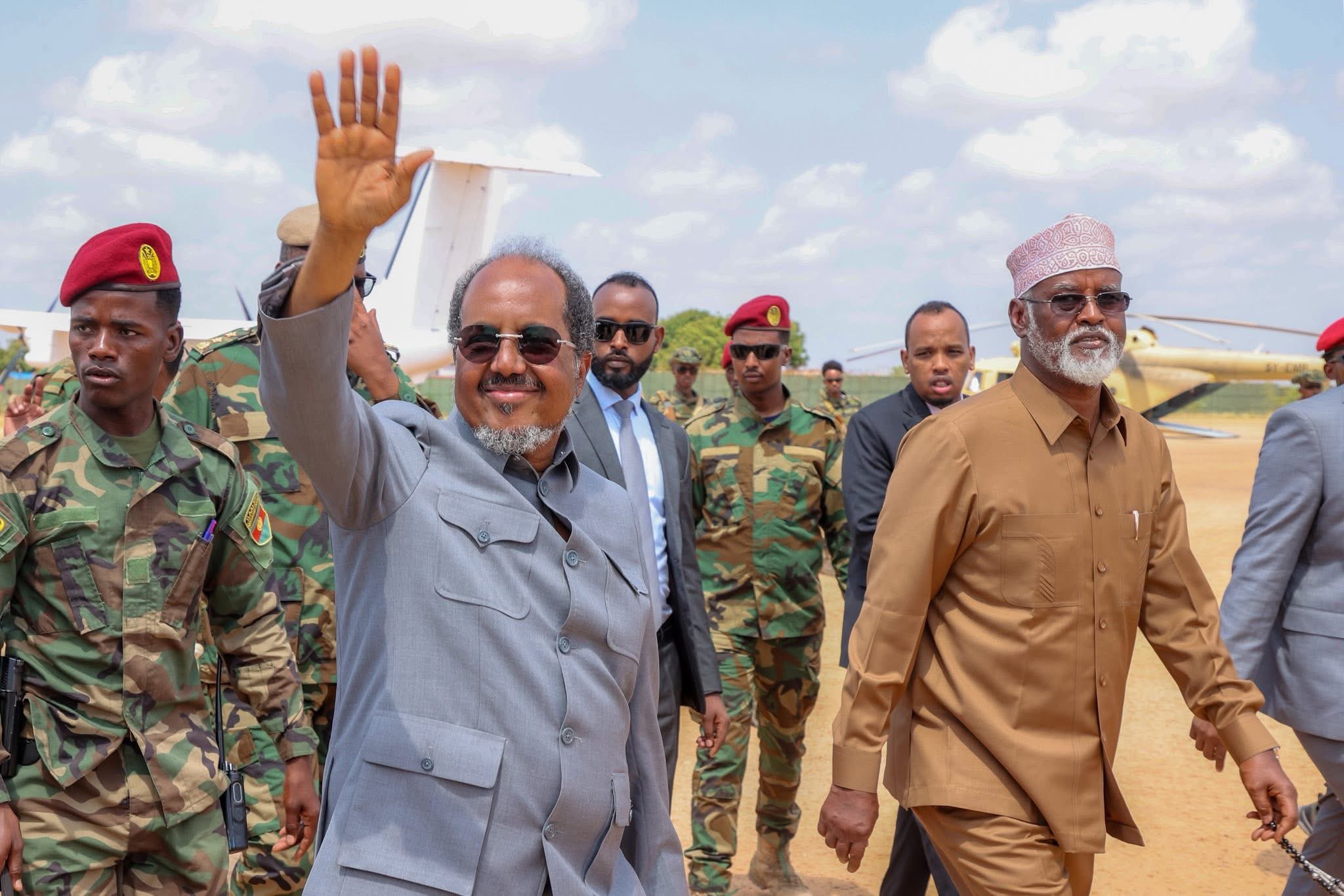
The duo, who have for months been at odds over federal power-sharing and state autonomy, are expected to discuss ways of rebuilding trust and strengthening cooperation between Mogadishu and Kismayo.
The long-running political rift between Somalia’s President Hassan Sheikh Mohamud and Jubaland leader Ahmed Madobe appeared to ease on Sunday after the Head of State arrived in Kismayo to begin reconciliation talks with his once fierce rival.
The duo, who have for months been at odds over federal power-sharing and state autonomy, are expected to discuss ways of rebuilding trust and strengthening cooperation between Mogadishu and Kismayo.
In what observers have termed a major political breakthrough, President Hassan Sheikh landed in Kismayo, the interim capital of Jubaland State, for the first time since the dispute erupted, marking a significant step in efforts to end a bitter fallout that has strained relations between the federal government and the regional administration.
More To Read
- Talks between Somalia’s President Hassan Sheikh, Jubaland leader Ahmed Madobe end without agreement
- Somali leaders make peace push with future council launch in Nairobi
- Senator Ali Roba raises further alarm over presence of Jubaland Forces in Mandera
- Maraga urges President Ruto to order withdrawal of Jubaland forces from Mandera
- Ruto, Defence CS Tuya criticised over their silence as Jubaland forces occupy Mandera
- Lamu County, Jubaland vow to strengthen cross-border ties in trade, health and security
According to Villa Somalia, the “president’s visit is part of ongoing efforts to “promote national unity, foster mutual understanding and advance a shared vision for Somalia’s peaceful and prosperous future.”
Upon arrival at Kismayo’s Sayid Mohamed Abdulle Hassan Airport, President Hassan Sheikh was warmly received by Jubaland leader Ahmed Mohamed Islam, popularly known as Ahmed Madobe, and senior regional officials, a gesture that signaled a possible thaw in relations after months of hostility.
The meeting marks a crucial attempt to resolve a year-long political and constitutional standoff between Mogadishu and Kismayo that has hampered national progress.
Relations between the two leaders deteriorated after Jubaland’s indirect presidential election in November 2024, which Mogadishu dismissed as illegitimate.
The fallout worsened when Jubaland boycotted a National Consultative Council (NCC) meeting convened by President Mohamud, an act perceived as open defiance of federal authority. Mogadishu, which has been pushing for a “one-person, one-vote” electoral system, viewed Madobe’s re-election as undermining that agenda.
The standoff reached a dramatic point on November 27 when both the Banadir Regional Court in Mogadishu and the Jubaland administration in Kismayo issued arrest warrants for each other’s leaders, an unprecedented moment in Somalia’s political history. Neither order was ever enforced.
The highly anticipated talks are now expected to address a wide range of national issues, including electoral reforms, constitutional amendments, and the ongoing fight against Al-Shabaab.
Discussions will also focus on strengthening security cooperation, political reforms and redefining governance structures to ensure smooth relations between the federal and state governments.
A key agenda item is Somalia’s transition toward universal suffrage, particularly preparations for the upcoming May 2026 elections. The leaders are also expected to deliberate on launching voter registration for local council elections in Jubaland, a significant step in Somalia’s shift from indirect to direct voting.
In a statement posted on Facebook, the Jubaland State House reaffirmed the region’s commitment to peaceful dialogue, saying it “remains committed to open dialogue and to working toward fulfilling the aspirations of the Somali people.”
Federal officials said the discussions are aimed at creating a framework for sustained cooperation on security, regional development, and power-sharing under Somalia’s federal system.
Security in Kismayo was reportedly heightened ahead of the president’s arrival, with heavily armed troops patrolling major streets and securing strategic installations. Two federal aircraft carrying additional forces were deployed a day earlier to reinforce security in key areas.
Relations between Mogadishu and Kismayo have been tense since 2019, when disputes over electoral management, regional autonomy and security control escalated into armed confrontations. Tensions deepened further in late 2024 when Mogadishu nullified Jubaland’s regional elections, triggering legal and political brinkmanship that paralysed coordination on key national priorities.
Sunday’s visit is viewed as a major test for President Mohamud’s broader state-reconciliation agenda, which seeks to repair ties with federal member states and strengthen unity in the fight against Al-Shabaab.
Top Stories Today



